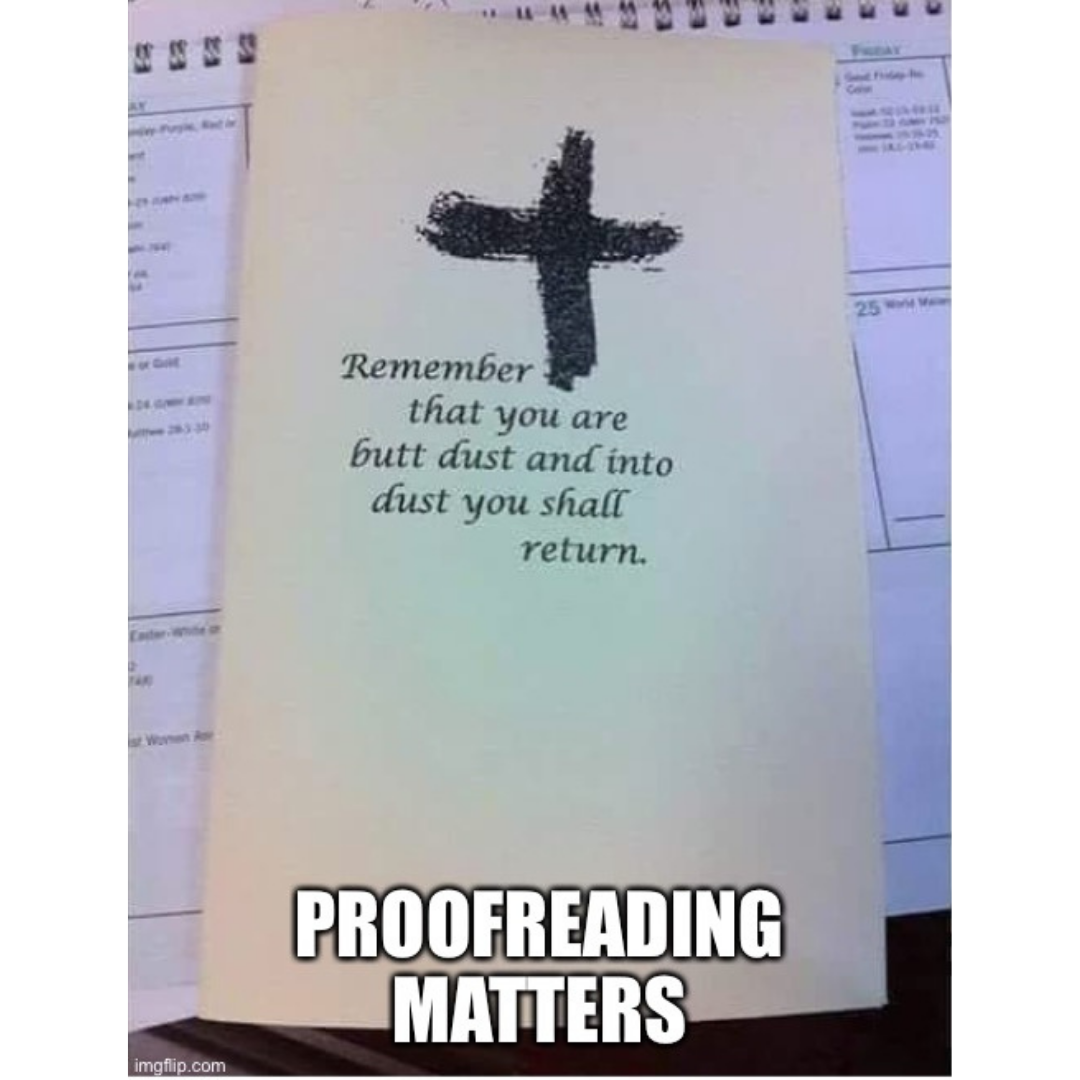Muphry’s Law and What to Look Out For
The author sent me a copy of her published manuscript. The acknowledgements page thanked several notable people, including her editor. I squealed with delight and flipped through the pages, coming to rest midway through the book. A typo glared up at me.
I groaned and shut the book.
Yes, the editor was me.
“Murphy’s Law” states “If something can go wrong, it will.”1 For the sake of people cringing the world over, it’s been extended and adapted to various industries, including editing.
The similar and equally cynical “Muphry’s Law” is a summary of four editorial principles:
- If you write anything criticizing editing or proofreading, there will be a fault in what you have written. (I call this the Prepare to Eat Crow principle.)
- If an author thanks you in a book for your editing or proofreading, there will be mistakes in the book. (Also known as Inflate and Deflate, as illustrated by the first paragraph of this post.)
- The stronger the sentiment in (a) and (b), the greater the fault.
- Any book devoted to editing or style will be internally inconsistent.2
If you, like me, can confirm the truth of these statements, welcome to a large and humble group of people who love language even though it trips them up.
For the sake of reducing Muphry’s Law from a jack hammer to a mosquito-buzzing level of frustration, here are a few stumbling blocks we often miss in our own work.




